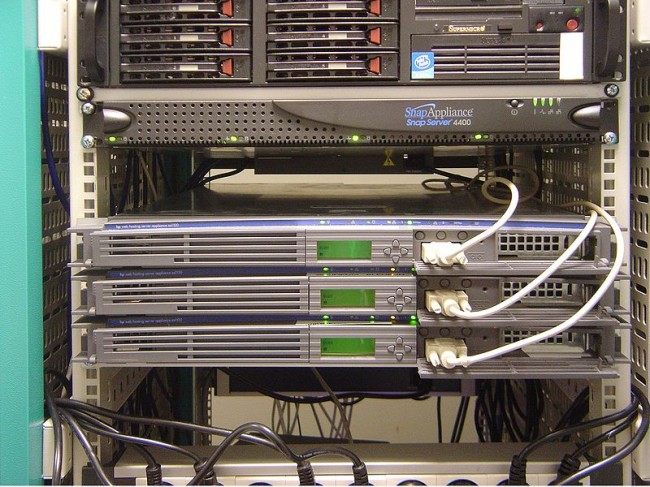
As Google can verify. According to the NYT piece: Google Details Electricity Usage, Google said its operations draw approximately 260 million watts continuously to run its online services and office buildings. That figure includes all of the e-mail applications, Youtube videos, Google searches, Google documents, etc. That works out to be about 6.24 million KWh per day or 21,292,752,000 BTU per day. Here are some of the amounts and costs for other fuels:
| Fuel | Unit | Amount | Average cost $ | Cost per day |
| Electricity | KWh | 6,240,000 | 0.05 | 312,000 |
| Gasoline | Gallon | 185,963 | 3.61 | 671,326 |
| Diesel | Gallon | 170,342 | 4.05 | 689.885 |
| Coal | Ton | 819 | 156.40 | 128,091 |
| Natural Gas | CCF | 211,868 | 2.335 | 494,712 |
| Propane | Gallon | 231,443 | 3.02 | 698,957 |
Those figures do not take into account the efficiency of the generation process. For example, the average coal fired power plant is 32% efficient, thus the actual tonnage of coal needed to produce 6.24 million KWh is 1,376 at a cost of $215,194. Other fuels have similar electrical conversion efficiency, with the internal combustion engine being about 19% efficiency for any given fuel.
Some other interesting tidbits from the article:
- Each Google search uses about 0.3 Watt-hours of electric
- The average user uses 180 Watt-hours per month
- Approximately 12.5 million Watts or 30,000 kWh per day are used by search engine traffic
- 25% of Google’s energy is supplied from renewables
- Google designs and builds its own data centers using energy-efficient technology
One can assume that other data centers are not as efficient as Google’s. It would be interesting to do a comparison between the electrical use by AM and FM broadcast transmitter sites and the energy used by data centers that stream radio content. Right now the data center’s electrical costs are still relatively low because over the air radio listenership far out strips on line listenership. Eventually, those numbers will flip and I’d think the increased costs associated with greater streaming will be paid by somebody, likely the content generator.
All those webstreams, videos, and search engine queries are not free.
